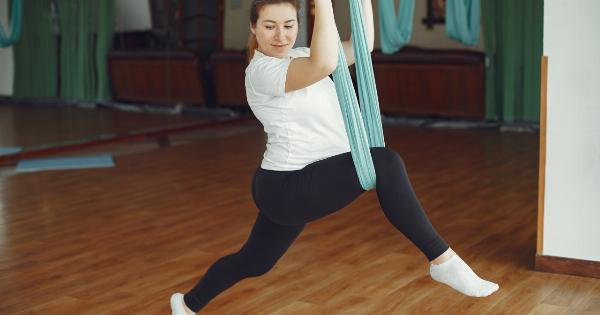Expectant mothers have often been advised to avoid exercise during pregnancy with the fear that it may lead to complications.
However, recent studies have shown that moderate exercise during pregnancy can have numerous benefits for both the mother and the baby.
Importance of exercise during pregnancy
Being physically active during pregnancy is essential as it helps reduce the risk of developing conditions such as gestational diabetes, hypertension, and preeclampsia.
Women who exercise regularly during pregnancy also have a lower risk of postpartum depression.
Additionally, exercise during pregnancy can help improve overall muscle strength and tone, which can prepare the body for the physical demands of childbirth.
Regular exercise can improve cardiovascular fitness, making it easier for the mother to cope with the demands of labor.
Types of exercises recommended during pregnancy
Expectant mothers should focus on low-impact exercises that put minimal stress on their joints. Swimming is an excellent option as it helps reduce the impact on the knee and ankle joints while effectively working out the core muscles.
Light resistance training with low weights can also help maintain muscle mass and improve strength.
Prenatal yoga and Pilates are also great options as they help improve flexibility and balance, as well as help relieve stress.
Regular stretching exercises can help alleviate muscle soreness and increase flexibility, both of which are important during pregnancy.
Benefits of exercise to the baby
Exercising during pregnancy can improve the baby’s brain function and cognitive development.
Studies have shown that children born to mothers who exercised during pregnancy have better language and social skills and are better problem solvers than children born to sedentary mothers.
Additionally, studies have shown that babies born to mothers who exercise regularly during pregnancy have a lower risk of obesity later in life.
Tips on exercising safely during pregnancy
Before starting any exercise program, it is important to consult with a healthcare provider to ensure that it is safe for both the mother and the baby.
Expectant mothers should also start slowly and gradually increase intensity and duration as their fitness improves.
It is important to listen to the body and avoid exercise if it causes discomfort or pain. Hydration is also key, and expectant mothers should ensure that they drink plenty of fluids during and after exercise.
Conclusion
Exercise during pregnancy is safe and has numerous benefits for both the mother and the baby.
It can help reduce the risk of developing pregnancy-related complications, improve overall muscle strength and tone, and prepare the body for the physical demands of childbirth. Expectant mothers should consult their healthcare provider before starting any exercise program and focus on low-impact activities that put minimal stress on their joints.



























